Events and Activities
Online talk by Lisa Onaga on Silk-Making Knowledge in Amami Ōshima
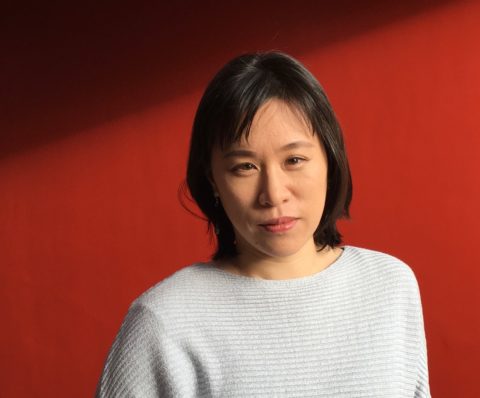
The signature designs featured on Amami Ōshima tsumugi textiles today are so intricate that they can resemble shimmering pixels on a computer screen. Even though designers have been confined to the geometry of squares, the patterns appearing on these textiles have changed remarkably over time. Why? This talk reflects upon recent fieldwork conducted in Amami Ōshima driven by this simple question. Study of the dynamic process of textile production illuminates the complicated archipelagic location between Kagoshima and Okinawa that has informed Ōshima tsumugi production and trade. Tracing how weavers themselves scrutinized the notion of Amami Ōshima tsumugi enables critical contextualization of the postwar consumption of Amami Ōshima tsumugi by the “mainland” relative to the preservation of archipelagic knowledge and livelihood. Details and registration here
Lisa Onaga, Max Planck Institute for the History of Science / DIJ Tokyo
International Symposium on Art and Regional Revitalization
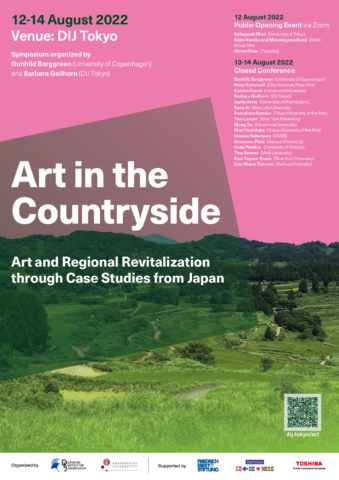
Twenty international experts and outstanding Japanese artists will meet at the DIJ in August to discuss how the arts can contribute to overcoming the multiple challenges facing regions in Japan. Since the early 2000s, regional arts projects and festivals have sprung up in many places in rural Japan, including the Triennial in Echigo-Tsumari and the Toyooka theatre festival. Many regions anticipate such events to create new types of social, cultural, and economic capital in the area. The symposium addresses ‘Art in the Countryside’ from an interdisciplinary perspective, including Visual and Performing Arts, Cultural Policy, Tourism Studies, and Social Anthropology. Limited places are available for on-site participation. The event is organised by Gunhild Borggreen (Copenhagen) and DIJ’s Barbara Geilhorn. It is part of their projects on Collaboration and Community Building in Contemporary Art and Local Issues Take Stage – Culture and Community Revitalization, respectively. Details and registration here
Barbara Holthus comments on legacy of Tokyo Olympics

One year ago the Tokyo Olympics were opened. What remains as their legacy? DIJ deputy director Barbara Holthus, who was a volunteer at the Games, commented on the Games’ legacy and Japan’s future Olympic ambitions for an AP article (21 July 2022). “People were so upset that Thomas Bach pushed the Olympics down everybody’s throat without consideration for Japanese sentiments”, she said. “And now they want to it again without asking the people of Sapporo.” But Barbara also noted a positive shift in volunteers’ attitudes towards their involvement in the Games: whereas one year ago many of them “didn’t want to be seen in their neighborhood with the uniform on”, the “bad taste of the uniform now is kind of gone”, she explained. For more information on research related to the Tokyo Olympics, see the DIJ’s special project on the Tokyo Olympics and the open access book publication Japan Through the Lens of the Tokyo Olympics.
New research partnership with Asia Research Institute
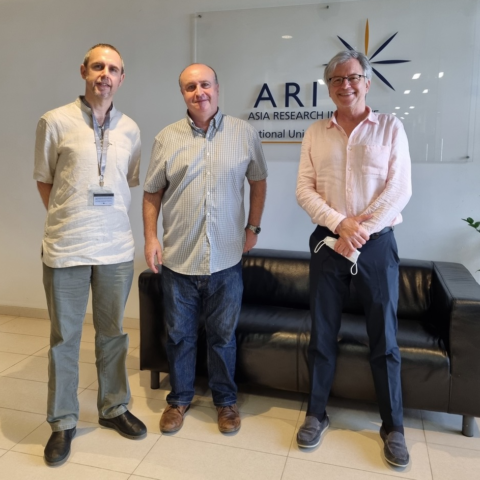
DIJ director Franz Waldenberger has signed a new research partnership on Asian infrastructures with the Asia Research Institute (ARI) at the National University of Singapore (NUS). The partnership is interested in infrastructures in a broad sense, focusing on knowledge networks, health and migration infrastructures, transport infrastructures, digital and financial infrastructure networks and nodes as well as China’s Belt and Road Initiative. This new research partnership with ARI replaces the Max Weber Foundation Research Group on Borders, Mobility and New Infrastructures that was established in the Faculty of Arts and Social Sciences at NUS in June 2017. The new DIJ-ARI partnership will be coordinated jointly by ARI director Tim Bunnell, James D. Sidaway (Department of Geography, NUS), and Franz Waldenberger. See also announcement on ARI’s website here
Summer issue of DIJ Newsletter published
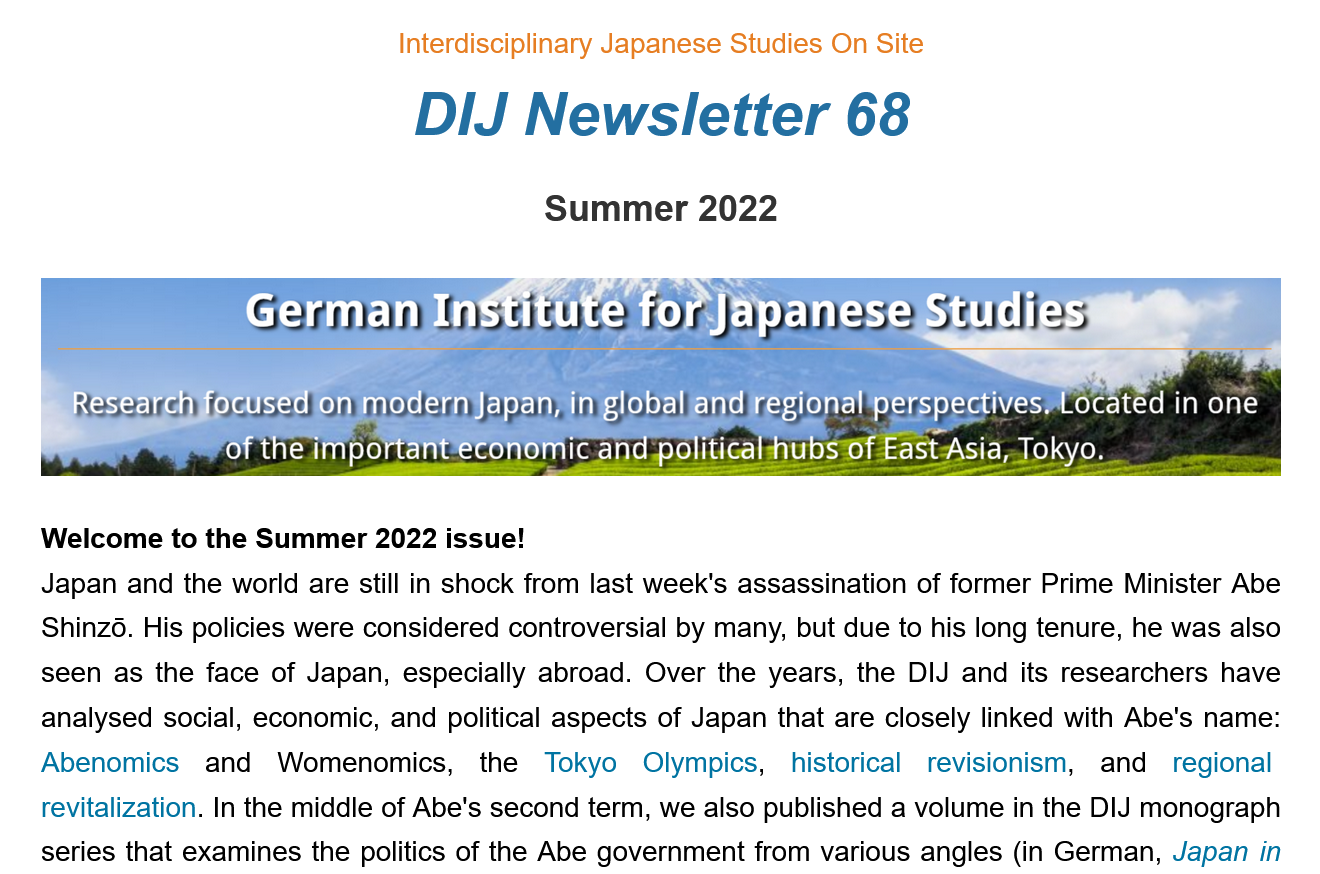
We have just published the summer issue of our DIJ Newsletter featuring updates on our research, publications, and events, including a new research project on Green Finance; a symposium on Art in the Countryside in August; introducing a DIJ visiting professor and our new DIJ brochure; a new article in our Catchword series (LINE Mondai); Alumni news; and a milestone in our Twitter outreach. We hope you will enjoy exploring this new edition of the DIJ Newsletter. If you haven’t done so yet, you can subscribe to receive it directly to your inbox. The full issues and subscription form are available here.
DIJ talk on Regretting Motherhood by Forum Mithani (hybrid event)
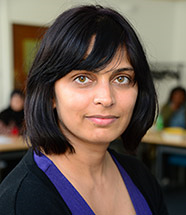
The publication of Hahaoya ni natte kōkai shiteiru (Regretting Motherhood) in March 2022 attracted significant attention in Japanese media. This followed waves of interest across the globe since the book, by Israeli sociologist Orna Donath, was first published in 2017 and subsequently translated into multiple languages. Donath’s provocative study has caused outrage as well as earned praise for its tackling of a subject that remains a taboo in many societies, not least of all in Japan: women who express regret for having become mothers. This talk introduces Donath’s work, focusing in particular on the book’s reception in Japan, and what it reveals about notions and conditions of motherhood in a society in which the low birth rate continues to raise alarm. Details and registration here
Forum Mithani, Cardiff University & Waseda University
Franz Waldenberger at round table discussion on Japan after Abe’s assassination
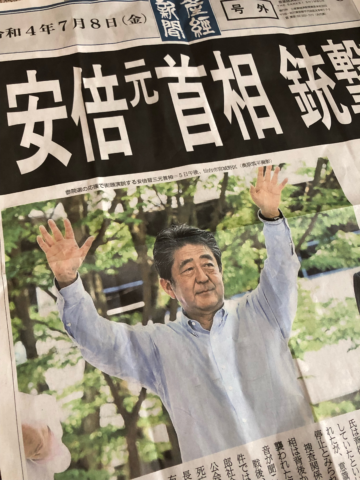
Last week’s assassination of former prime minister Abe Shinzō has shocked Japan and the world. How can we make sense of this event and what does Abe’s death mean for the future of Japanese politics and society? DIJ director Franz Waldenberger will join DIJ alumni Axel Klein (University of Duisburg-Essen) and Alexandra Sakaki (Stiftung Wissenschaft und Politik) to discuss the implications of Abe’s assassination for Japan on July 15, 18.00-19.00 (JST)/11.00-12.00 (CEST), online, hosted by the Japanese-German Center Berlin. The round table discussion “Das Attentat auf Premierminister a.D. Abe – Einordnung und Folgen” will take place in German. Details and registration here
Celia Spoden to give talk on Cybernetic Avatars at EASST conference

DIJ social scientist Celia Spoden will give insights into her research project Cyber-physical spaces and avatar technologies: new opportunities for an inclusive society? at the upcoming conference of the European Association for the Study of Science and Technology (EASST) in Madrid. Celia’s paper “Visions and Realizations of Cyber-Physical Spaces in Japan: Solving societal issues by Cybernetic Avatars” is part of a panel on Aging technofutures: futuring old age in technological societies. It takes place on Thursday, July 7. In her paper, Celia discusses the technoscientific futures imagined by the Japanese government and compares them to the visions of researchers in the “Moonshot Research and Development Program” which was launched by the Japanese Council for Science, Technology, and Innovation in 2020. More information on the EASST 2022 website here








 Open Access
Open Access
